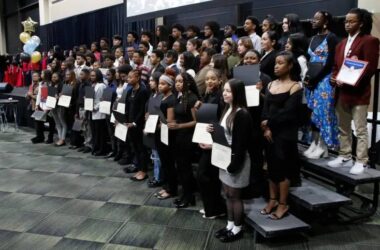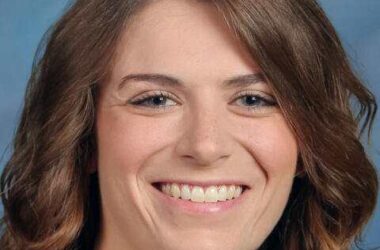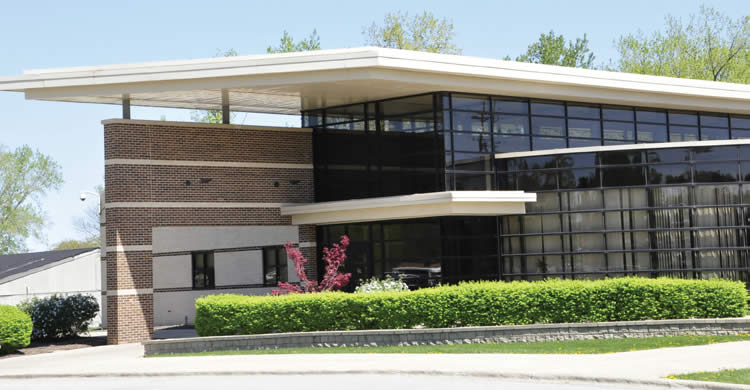EUGENE, Ore.–(ENEWSPF)–March 13, 2014 – A University of Oregon class and Wells Fargo will provide a $5,000 boost to a local nonprofit organization that provides a summer camp and other programs for people impacted by autism. 
Today, the UO and Wells Fargo celebrated its annual philanthropy class program and this year’s recipient of $5,000: KindTree – Autism Rocks. KindTree is an organization dedicated to serving and celebrating people on the autism spectrum through art, recreation and community.
“Even though we are an all-volunteer organization, money is still needed to rent the Boy Scout facility for our Friends and Family Camp, buy food for up to 250 people, provide quality art materials, effective safety equipment, budget scholarship funds and purchase supplies that we can reuse year after year,” said Tim Mueller, secretary and treasurer for KindTree.
For the past 12 years, freshman students in the “American Philanthropy” course have taken on a significant task to research, evaluate, advocate for and select a Eugene-Springfield area nonprofit organization to receive a $5,000 grant from Wells Fargo. This is the second straight year the students chose KindTree for the grant.
“The students I spoke with in both instances were attentive, enthusiastic and determined,” Mueller said. “They not only listened with interest to the story of our nonprofit and our mission, they shared their own feelings as well as their strategies to be successful in the class and with this project.”
Renee Irvin, UO professor of planning, public policy and management, and Dave Frosaker, recently retired Wells Fargo senior trust officer, co-founded the “American Philanthropy” freshman seminar course. For the past nine years it has been taught by Paul Elstone, associate vice president for development at UO.
“Our connection to this seminar is not a coincidence,” said Derek Nickleson, a Wells Fargo private banker in Eugene. “The subject of philanthropy, community support and helping others succeed has been a central focus of Wells Fargo during the past 162 years. We are committed to supporting the communities in which we do business, and that certainly includes Lane County.”
For many of the students, the seminar is an eye-opening experience to see the business side of service organizations and how impactful a grant can be to expand programs, services or purchase much-needed equipment.
The UO course launched a trend that has led to many universities and high schools creating similar programs.
“More and more students are getting exposed to the importance of the nonprofit sector at an early stage, which is a good thing,” said Elstone.
Although most students begin the course with some exposure to the nonprofit sector, the course offers students the opportunities to see real-world aspects of nonprofits and philanthropy. Students grapple with questions of where the $5,000 will have the greatest impact, which organization has the tools to utilize the grant most effectively, and they have to advocate to peers for voting rounds to narrow the field from 30 possibilities to four finalists and one grant recipient.
Elstone asks each student to be part of the decision-making process, with students writing case statements as well as reviewing grant applications. After voting and narrowing down the possibilities, the course’s 15 students split into groups of three and four to review four finalist organizations.
During the final class meeting, each group presents to their classmates about why the organization they reviewed is most deserving. Every year the excitement is high following the final vote.
“The winning students sometimes call the nonprofit that night at 9 o’clock because they are so excited,” said Elstone.
Source: uoregon.edu








